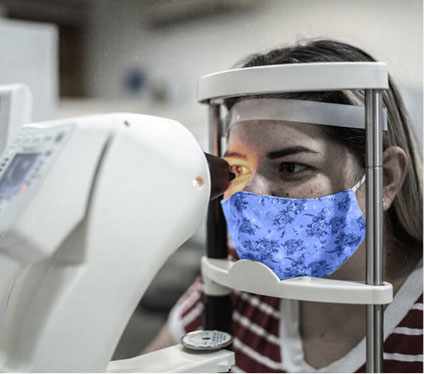IN a recent small study, researchers looked at whether changes to the cornea — the transparent outer layer of the eye — could have links with long Covid.
The scientists concluded that the loss of nerve fibers and the increase of immune cells in a person’s cornea has links to long Covid.
However, larger studies with a greater number of participants are necessary to confirm the results.
In a new study, researchers have identified a link between changes to a person’s cornea and the likelihood of having long Covid.
The researchers hope that in the future, doctors might be able to identify whether a person has long Covid by checking for a loss of nerve fibers and an increase of immune cells in their cornea.
Stay informed with live updates on the current Covid-19 outbreak and visit our coronavirus hub for more advice on prevention and treatment.
Covid-19 is primarily a respiratory disease. According to the Centers for Disease Control and Prevention (CDC)Trusted Source, symptoms can range from non-existent, where a person does not know they have contracted the virus, to severe, requiring hospitalization. Over 4.1 million people have died due to Covid-19 globally.
Despite primarily being a respiratory disease, Covid-19 can also affect other parts of the body. A study accepted for publication in the journal BMJ Open found that Covid-19 can also damage various organs.
For the study’s authors, this is one of the key reasons why an estimated 1 in 10 people go on to develop what is known as long Covid, where symptoms continue for weeks or months after the acute phase of Covid-19 has passed.
According to an overview of the syndrome published in the journal Diabetes & Metabolic Syndrome: Clinical Research & Reviews, symptoms of long Covid can include a tight chest, coughing, tiredness, palpitations, feeling breathless, muscle pain, or difficulty focusing.
Researchers have also notedTrusted Source that Covid-19 can also cause neurological symptoms, such as headache, loss of taste or smell, numbness, dizziness, and pain due to problems with the nervous system.
Although they are unsure why this occurs, they think that SARS-CoV-2 — the virus that causes Covid-19 — can transmit directly to a person’s nervous system.










